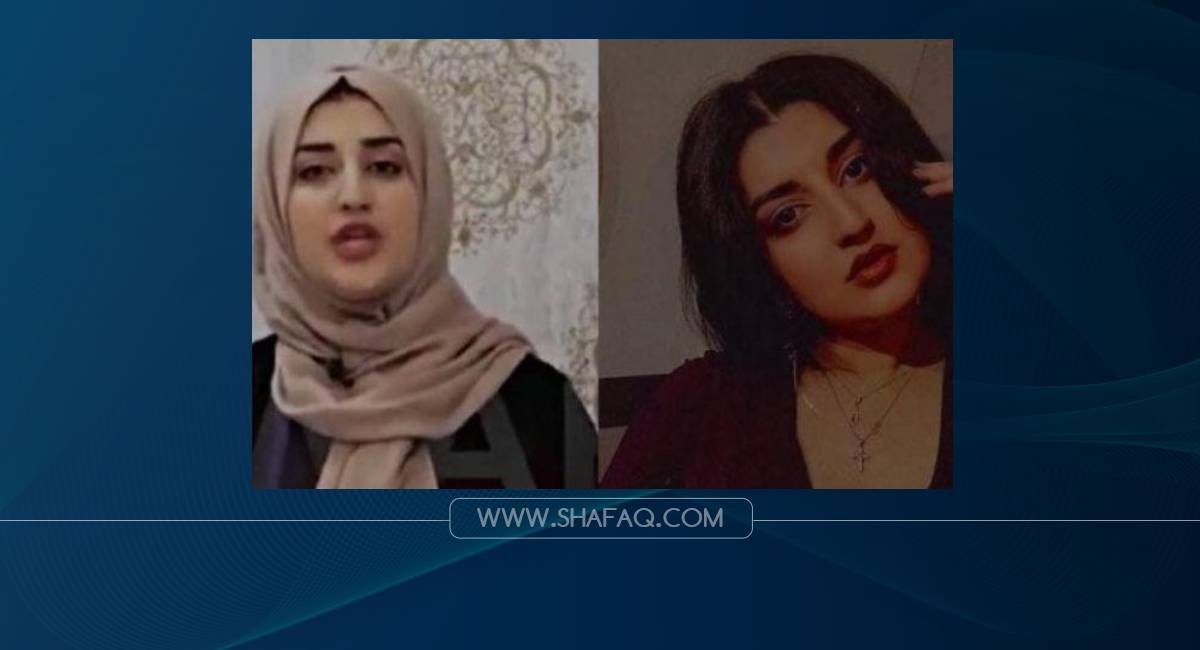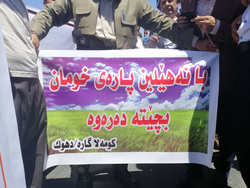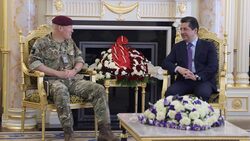Maria's slain youth.. Community standards define honor

Shafaq News / strong-willed vibrant Maria's days were cut short when she was brutally murdered and dumped in a street in Erbil.
"I do not know whether your way is wrong or mine" were the last words shared by Iman Sami Maghdeed, or "Maria" as she was known on social media, in a scene that encapsulates the situation of women killed by "ignorance, rumors, and outdated ideologies" in societies that regard women's voices, faces, ideas, and clothes a criterion for their eligibility to live, without heeding their suffering.
Maria's death reopened an unhealed wound in the Kurdish and Iraqi communities in general regarding ending women's lives through "honor killings".
According to those close to her, Maria was a 20-year-old Kurdish woman who got married when she was 12 years old. An age that is definitely not appropriate for marriage or taking on responsibilities and domestic, marital, and community burdens.
She then divorced her husband, removed her hijab, and began sharing her libertarian views on women and society. She was a feminist activist who was passionate about defending women's rights.
Maria was also active on social media, particularly TikTok and Facebook, and just days before her death, she posted, "I am not afraid of pain, for it has always been a part of me."
In Maria's case, as in other crimes against women, it appears that the community view defines women's "religiously permitted or not" appearance and actions from a perspective closer to customs and traditions than to religious faith.
Those close to her denied rumors that she had changed her religion and was the daughter of a cleric, indicating that her father works in a market in Kurdistan.
Those "rumors and short-sighted visions" appear to have driven her brother to murder her in the heart of Erbil, to become "a version of the woman he deems right" in society.
People gathered around her dead body, which was covered with a piece of white plastic, thinking they were looking at the body of a woman who died as a result of "honor killing," rather than the body of the famous social media activist, Maria.
The worst is yet to come
“The motive for the increased killing of women is the prevalent mentality in the society," civil activist Ramziya Zana told Shafaq News agency.
"If a woman commits a crime, she must be dealt with per the law. But, instead, Iraqi women face customs and traditions and end up killed."
Zana also warned, "If the situation at hand is not addressed, the people will be at great risk."
A member of the Women's and Human Rights Committees of the Kurdistan Regional Parliament, Kolstan Sa'id, called on the regional government to bring all women killers to justice and punish them firmly, "If the penalties are severe, killing women will be reduced or eliminated."
"We are submitting proposals to amend the domestic violence law passed by the Kurdistan Parliament in 2011. we are also working to tighten the penalties for those who murder women."
"Every day, we hear about women being murdered and a large number of defendants being tolerated in the courts."
"The Judicial Council previously stated that there are not enough judges. However, 47 new judges have been appointed, so the number is now adequate. There are no more arguments because we are facing a serious threat to community security."
"Strangely, Maria was killed in front of everyone and on a public street, which itself poses a major threat to community security," feminist activist Avan al-Jaf told Shafaq News Agency, urging the regional government to impose the harshest punishments on perpetrators of crimes against women and the police to investigate.
Al-Jaf highlighted another aspect of this social media issue, "female activists use social media to share their ideas and visions. We often notice how society's perception changes when the content these women shares is misinterpreted. In the future, we will focus on rectifying this issue."
In the same regard, Lt. Col. Sevin Tahir, director of the Erbil Domestic Violence Response Service of the Kurdistan Regional Government's Interior Ministry, stated, "Technology is one of the most important reasons for the current increase in domestic violence."
"Some people are misusing technology, and our society has not yet reached the point to use it correctly."
"Through clerics, psychologists, and social workers, we are attempting to make the proper use of technology clear to the people," Tahir said.
He continued, "There is no religion or law that permits killing women out of shame or honor."
A law passed in 2004 in Kurdistan prohibits reducing sentences for "honor killing", but this has not deterred murderers (often by members of the victim's family) from committing their crimes, which, according to experts, means there is still a need to amend the domestic violence law adopted by Kurdistan's parliament in 2011.
A few days ago, Erbil police announced that a woman's dead body was found, which turned out to belong to Iman Sami Maghdeed, aka Maria, the social media activist.
On the occasion of Women's Day, Kurdistan Regional President Nechirvan Barzani issued a statement expressing concern over, “the rates of violence, killings, abuse, and rights violation against women, which have a negative impact on the social status and the reputation of the Kurdistan region," pledging to spare no effort to support them and defend their rights and freedom.





